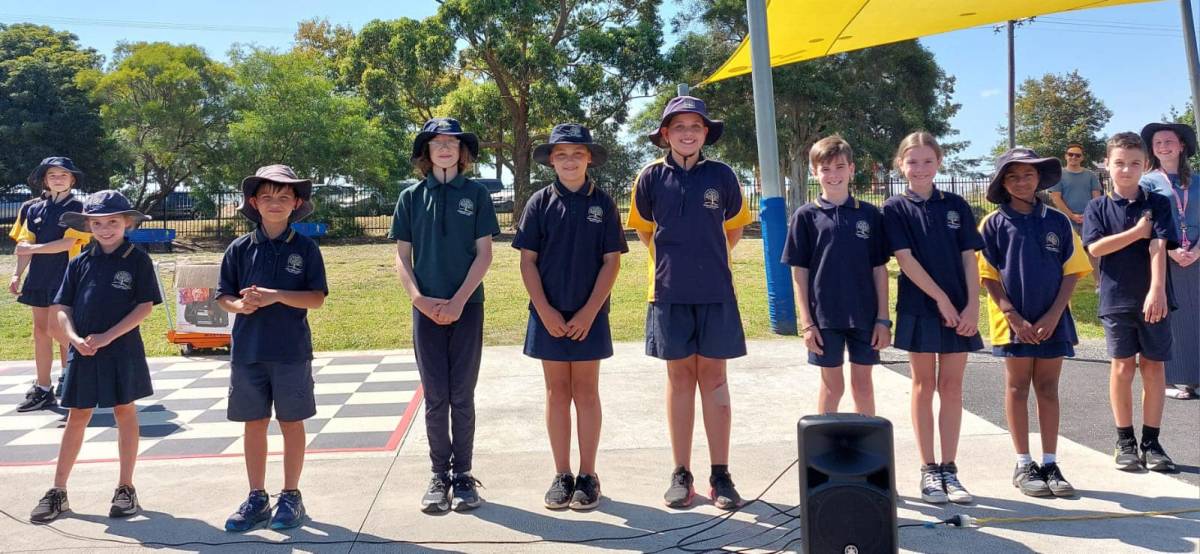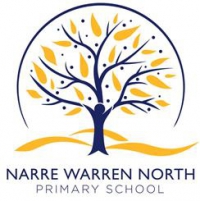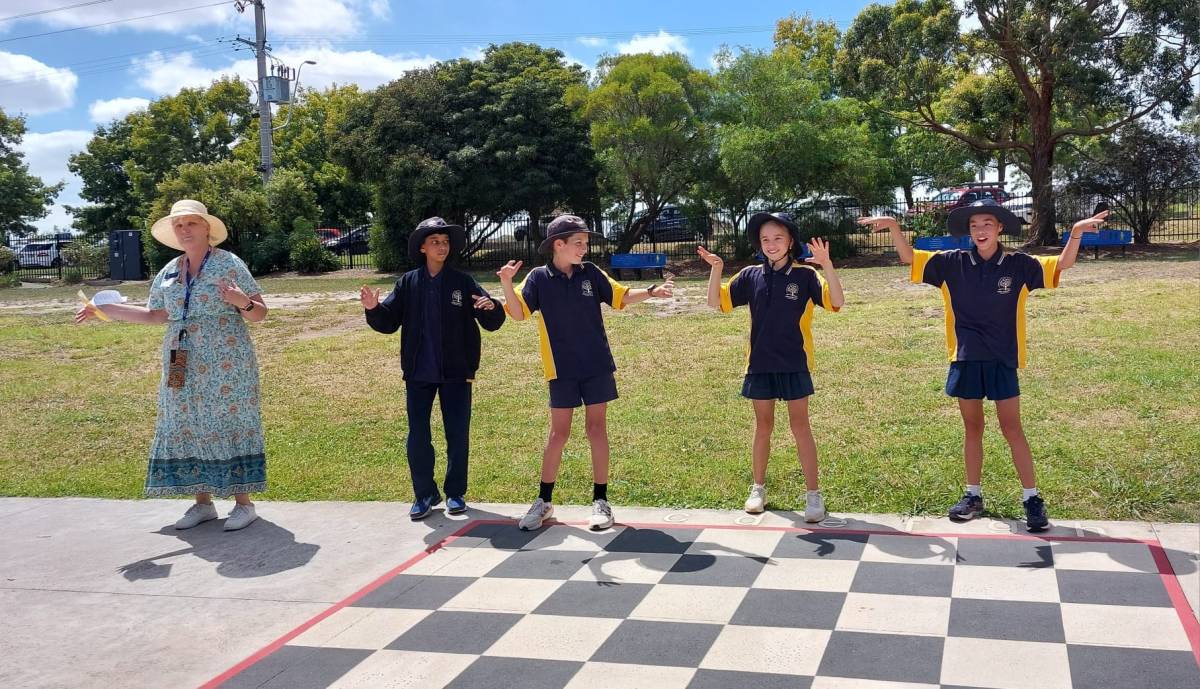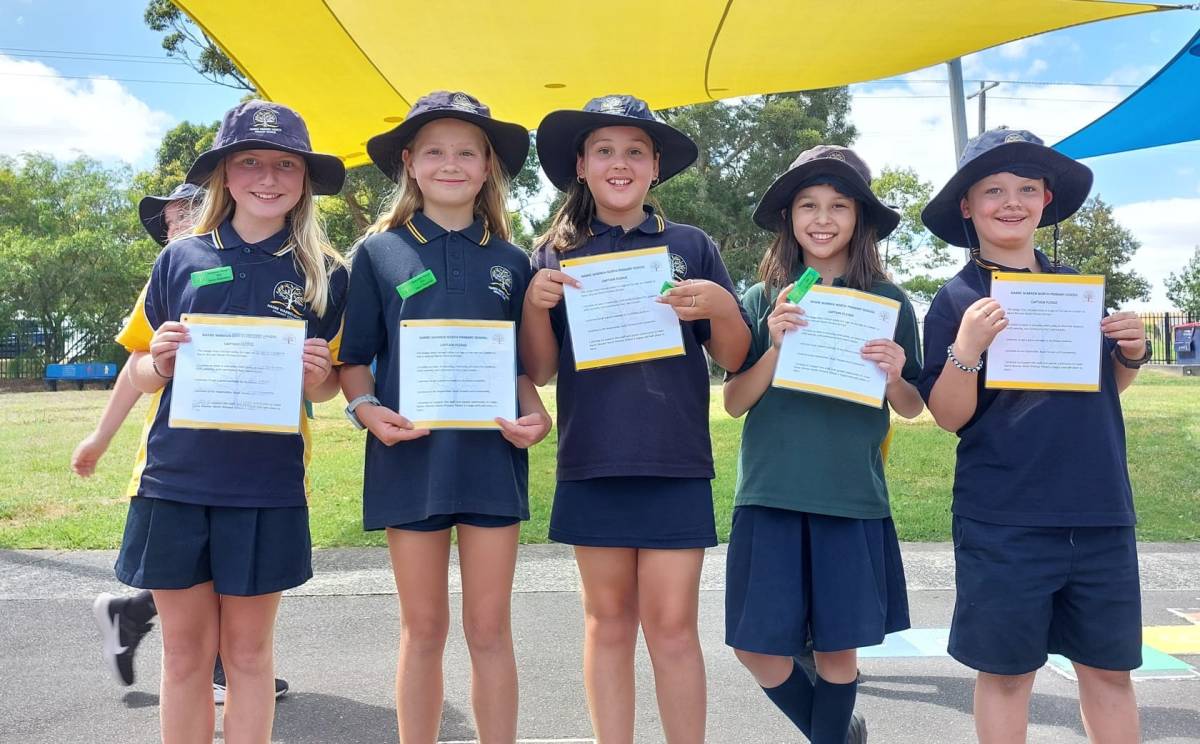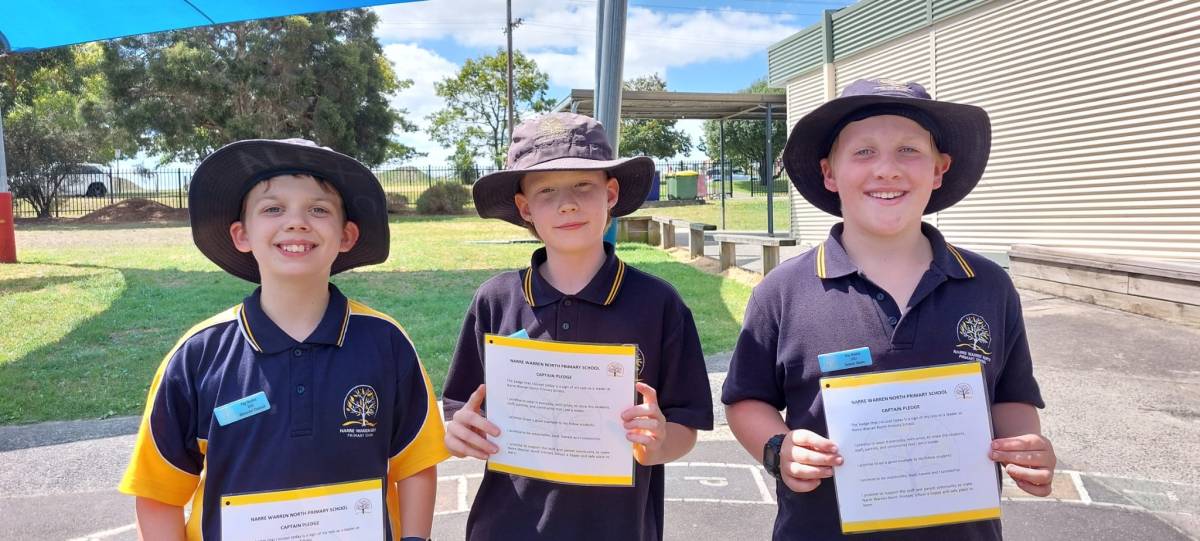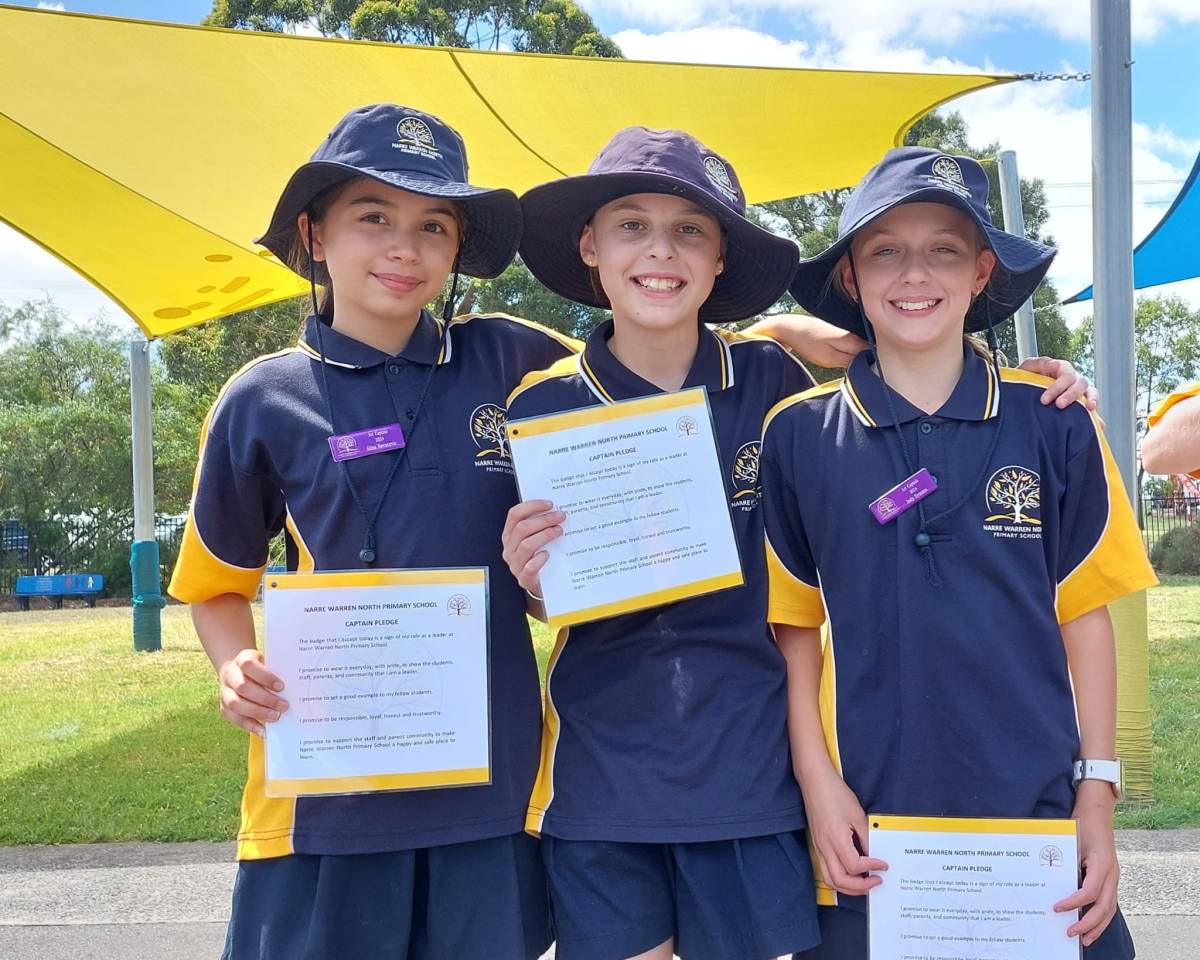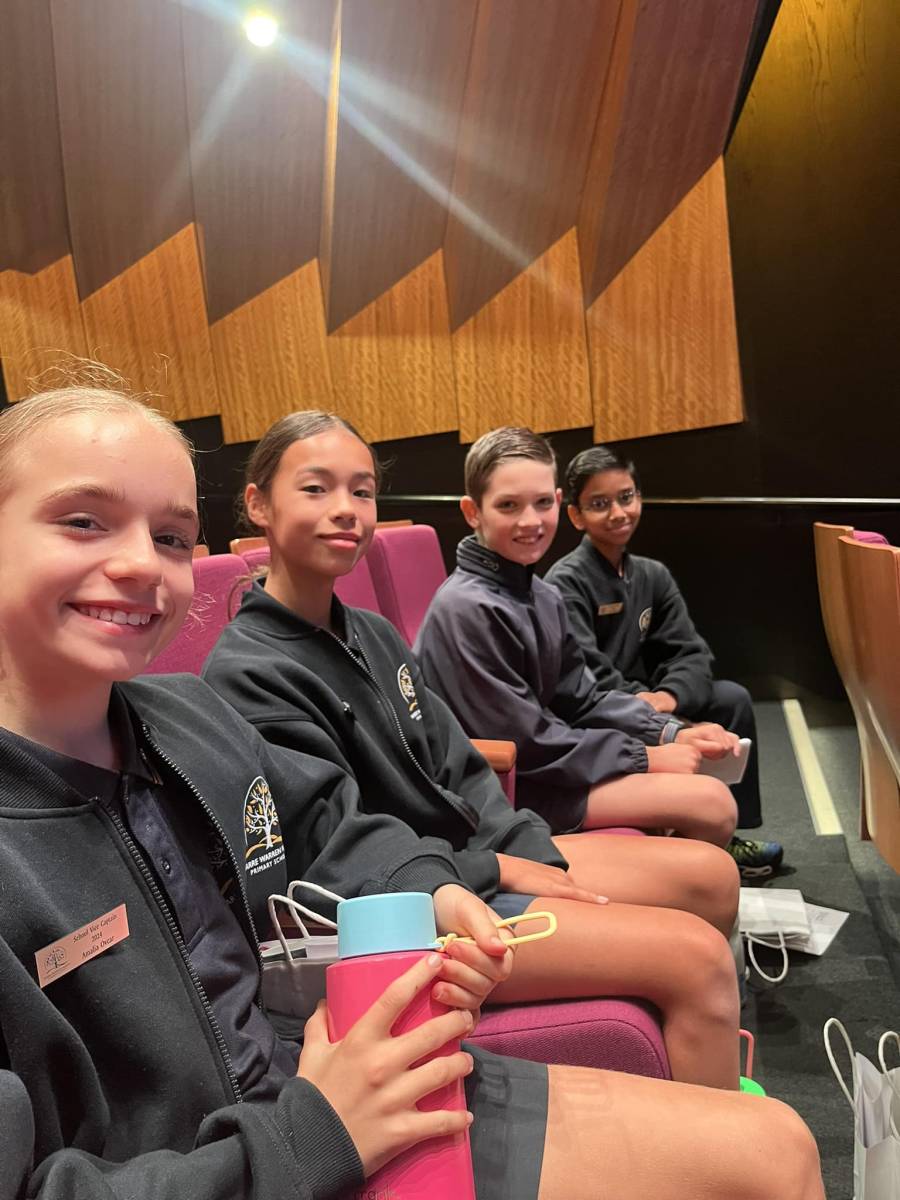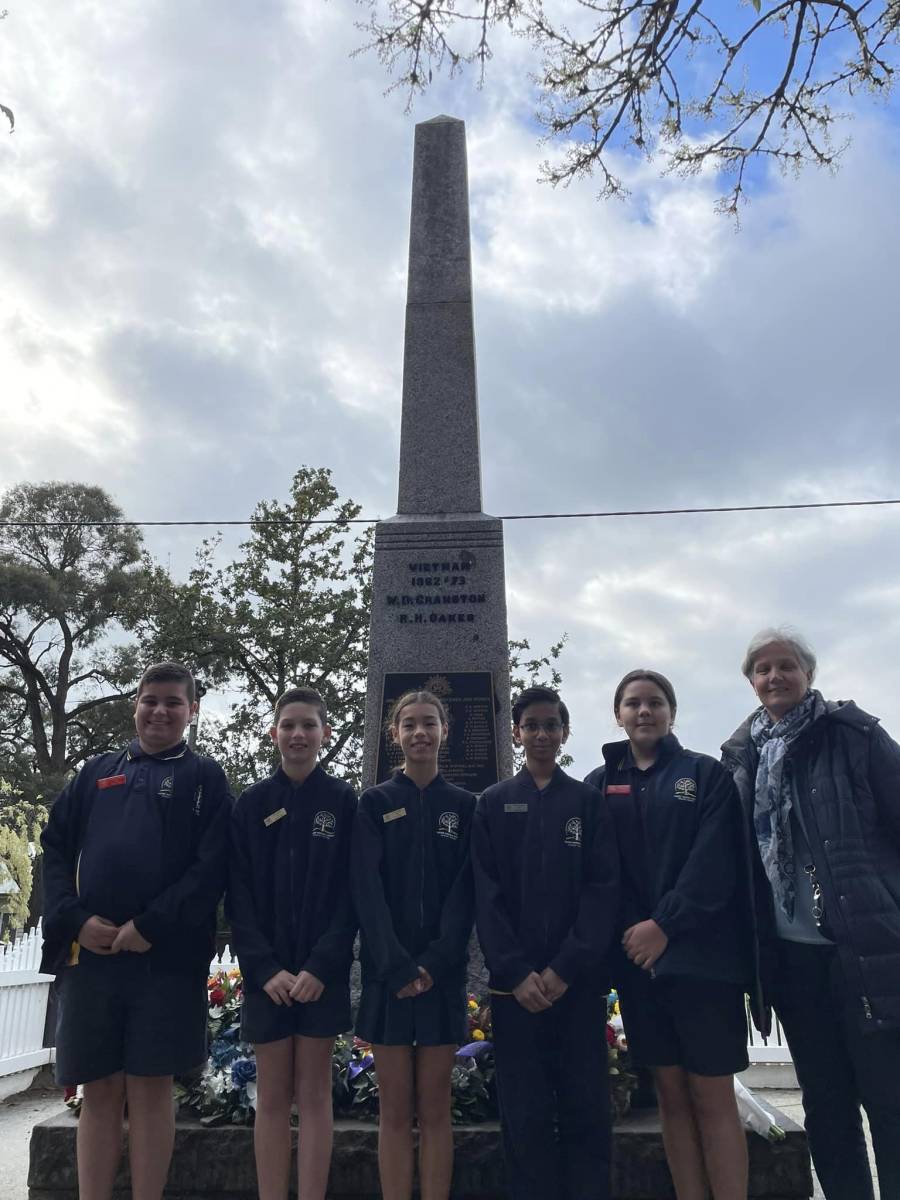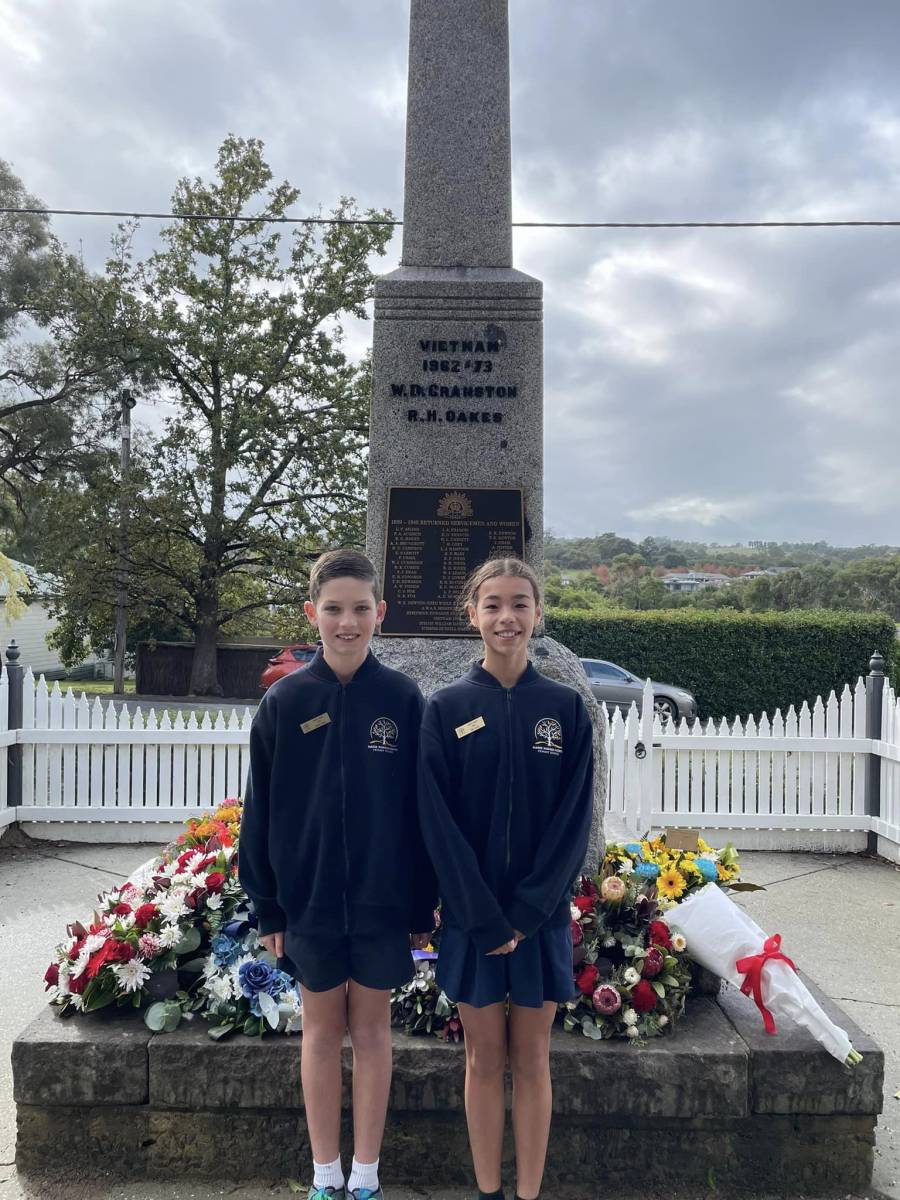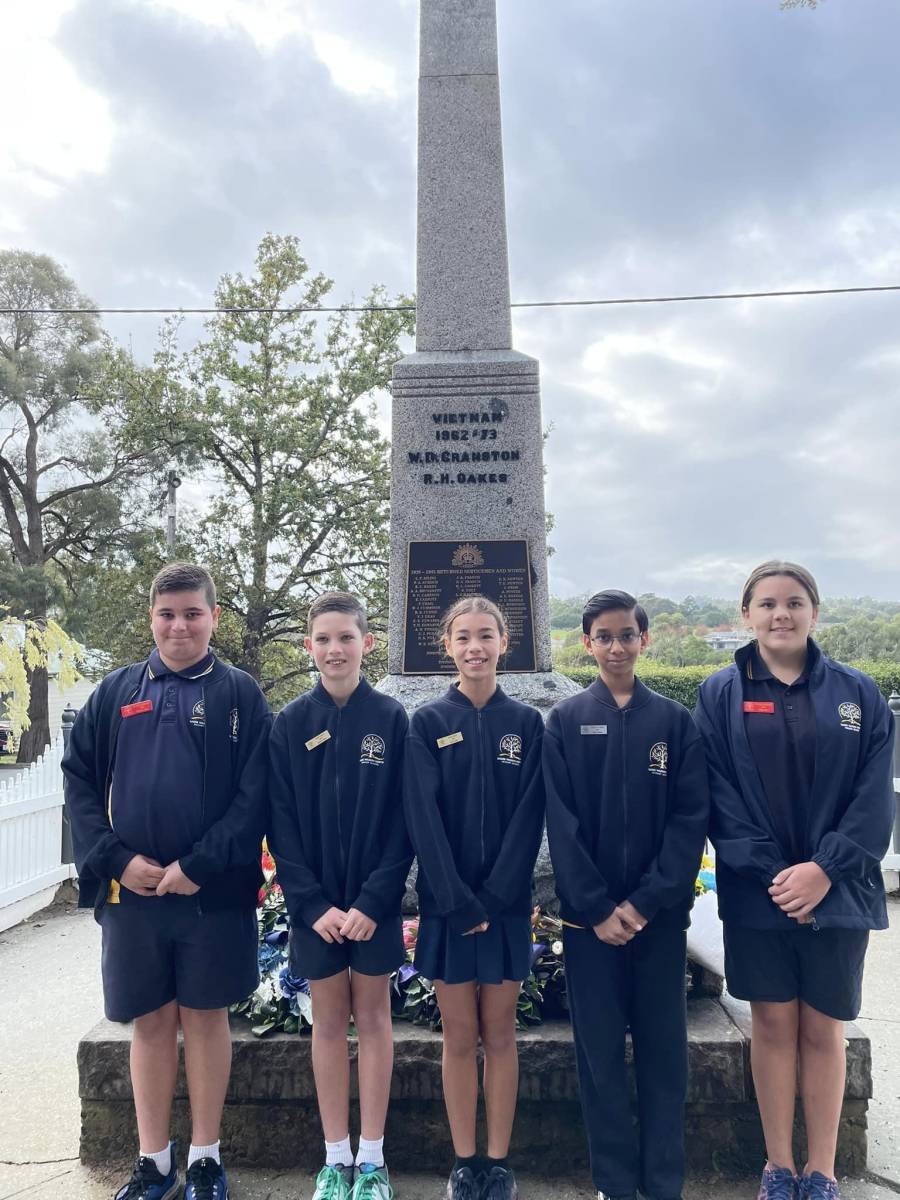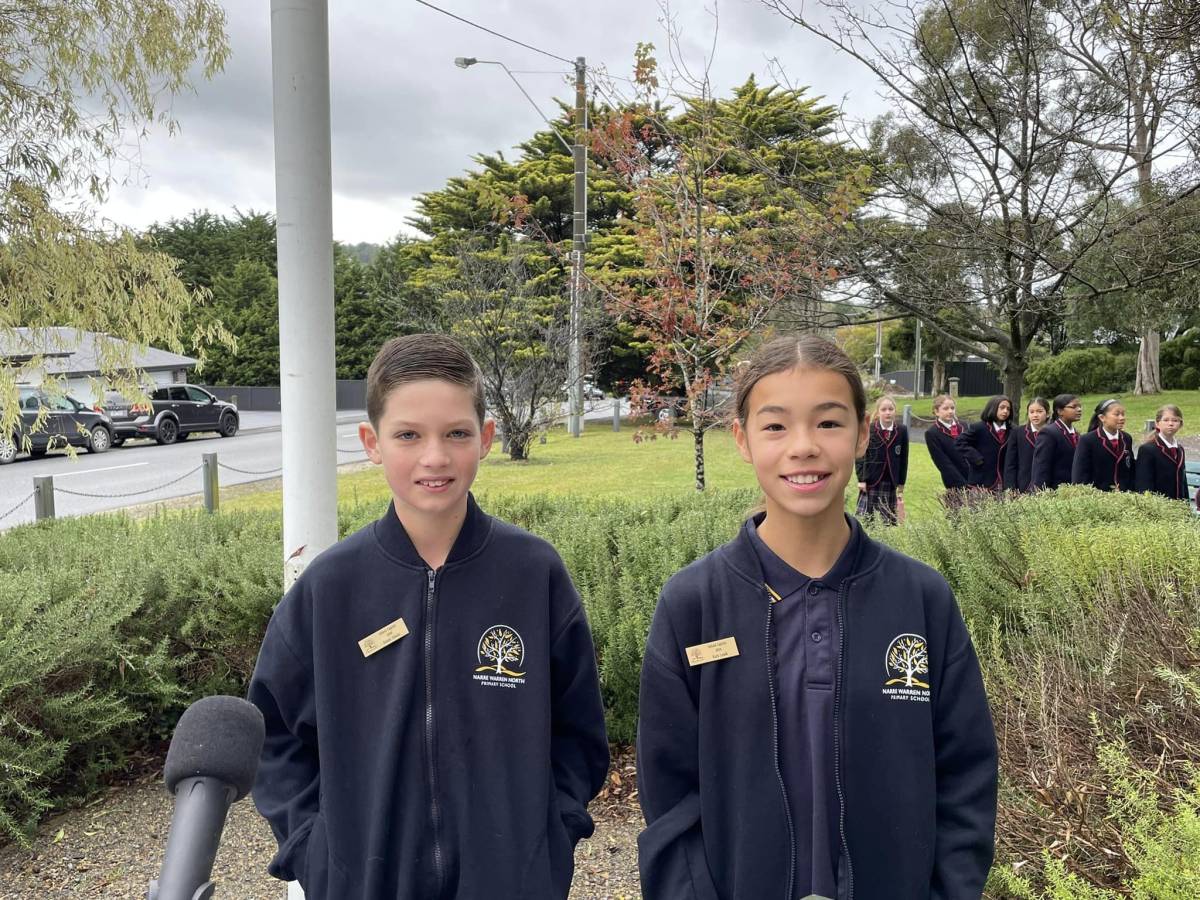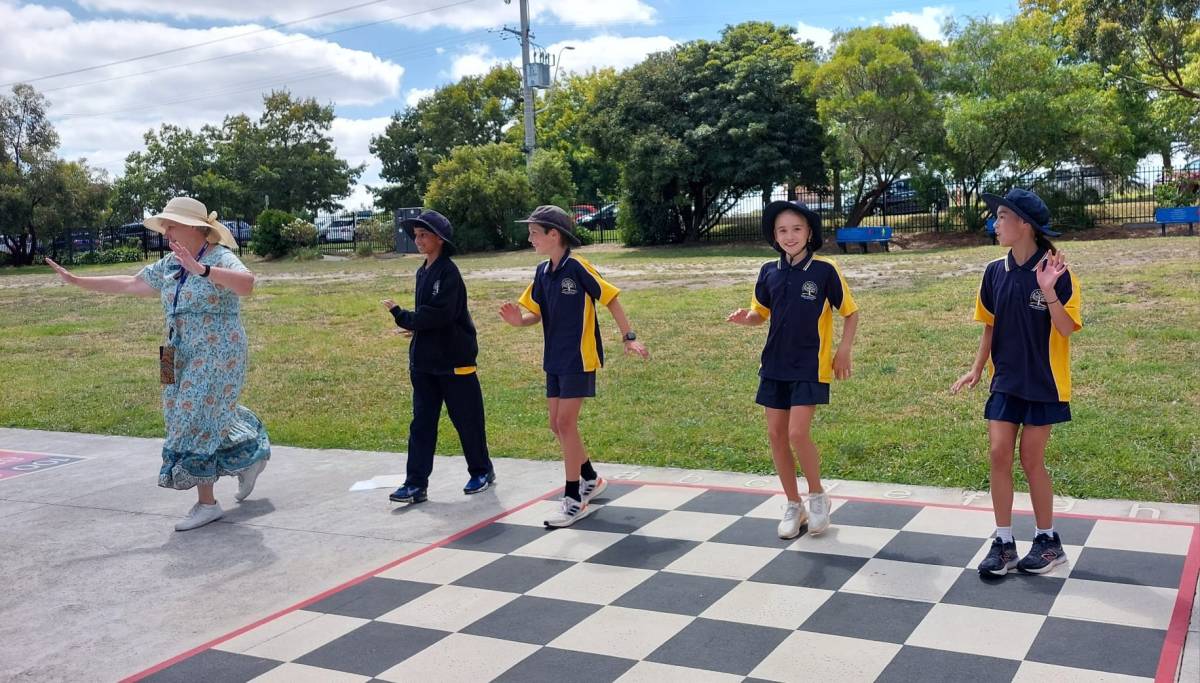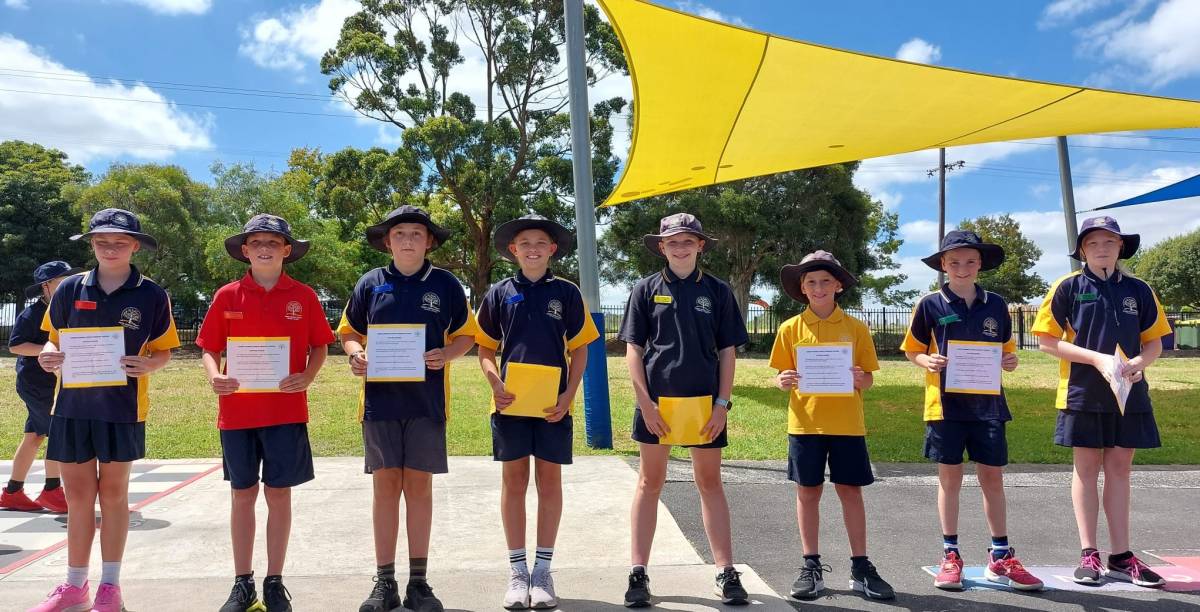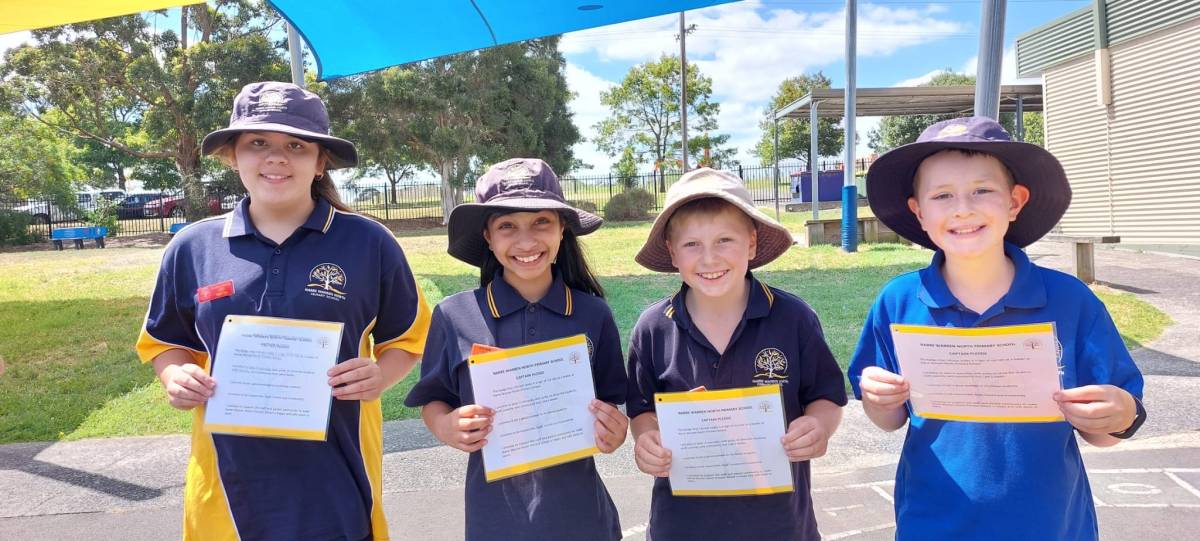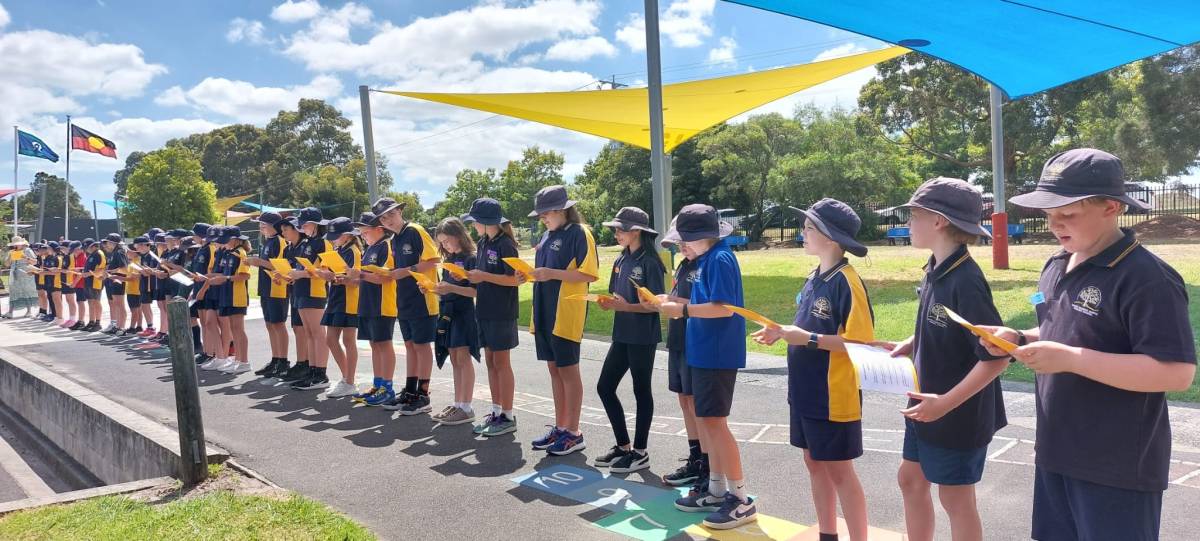Curriculum
Core Curriculum
Challenging and motivating students to take responsibility for their learning is a major goal of our curriculum program.
We base our current curriculum on the Victorian Curriculum. The Victorian Curriculum F–10 sets out what every student should learn during their first eleven years of schooling. The curriculum is the common set of knowledge and skills required by students for life-long learning, social development and active and informed citizenship.
The Victorian Curriculum F–10 incorporates the Australian Curriculum and reflects Victorian priorities and standards
We see Literacy and Numeracy skill development as fundamental to learning in all other areas. In addition to English and Mathematics, we utilise an Integrated Inquiry approach that allows students to actively investigate the way our world works.

In Inquiry , students investigate the concepts of Identity, Sustainability, Social Justice, Creativity, Community, Change, Necessity and Curiosity, and cover the following curriculum areas:
- Interpersonal Development
- Personal Learning
- Civics and Citizenship
- Economics
- Geography
- History
- Science
- Communication
- Design, Creativity and Technology
- Information and Communications Technology
- Thinking Processes
- Health Knowledge and Promotion
Specialist Programs operate in Physical Education, Visual Arts, Science, Performing Arts and Auslan. Computers, Chromebooks, televisions, laptops and iPads are some of the tools regularly used in our curriculum programs. ICT is integrated into classroom programs. Our school is moving to a Bring Your Own Device program in 2024. This program is begining with the grade 4 students and will progressively be rolled out throughout the senior school. Students who are not part of this program will continue to have access to the school devices in classroom.
Literacy Intervention Program
Our school has a literacy intervention program to support student growth in literacy. Students throughout the school are selected to be a part of this program based on thier literacy needs. Parents are notified if thier child has been selected to be a part of this program.
Literacy
Narre Warren North Primary School has a strong focus on Literacy. Students in all year levels participate in a daily literacy block, which includes Reading, Writing, Spelling and Oral Language. Our structured Literacy model is aligned with the Victorian Curriculum and incorporates explicit teaching, differentiated small group work and plenty of opportunities for students to practise their skills at a level that is suited to their needs.
Reading
Our CAFÉ Reading Program provides a consistent structure and language for teaching reading across all year levels. On the CAFÉ menu, reading strategies are broken into four categories:
Comprehension
Accuracy
Fluency
Expand Vocabulary
With four sequential CAFÉ menus across the school, students are able to work at a level that provides them with the support or extension they need. Classroom teachers conference regularly with students to provide them with feedback about their reading and set new learning goals. In addition to whole class learning, students are also able to independently practise their reading strategy during Read to Self / Read to Someone time as well as work closely with their teacher in a small Strategy Group to further their understanding.
Writing
Our writing program is aligned with the Victorian Curriculum and provides students with opportunities to write a range of genres such as narrative, persuasive, informative, procedural and poetry. Grammar and punctuation skills are explicitly taught alongside writing structure. At the beginning of the year, teachers work with students to establish writing behaviours in each classroom. Throughout each lesson, students receive explicit instruction regarding the writing process through a consistent school-wide approach. Good quality literature is used to support the teaching of writing in all genres.
Spelling
At NWNPS, students are taught using the Jolly Phonics program. Jolly Phonics is a fun and child centred approach to teaching literacy. With actions for each of the 42 letter sounds, the multi-sensory method is very motivating for children. Students are then taught to use their knowledge of Jolly Phonics when writing. When students have completed the Jolly phonics program, they are able to begin exploring Jolly Grammar. Jolly Grammar is an active approach with an emphasis on consolidating the children’s knowledge from Jolly Phonics and helping them develop an understanding of how grammar works.
Speaking & Listening
Oral Language is explicitly taught in classrooms each week, with a focus on developing attentive listening skills as well as speaking skills such as volume control, pitch, expression, eye contact and body language. Students have the opportunity to use these skills in front of audiences of various sizes such as their class, school assembly or external public speaking competitions.
Literacy Intervention
We provide researched intervention to students needing extra assistance. We utilise proven intervention programs from MulitiLit Pty Ltd.
MultiLit (Making Up Lost TIme In Literacy) is a leading provider of effective literacy instruction. Their programs including MiniLit and MacqLit are uniquely placed to be effective because they are all grounded in scientific evidence-based best practice.
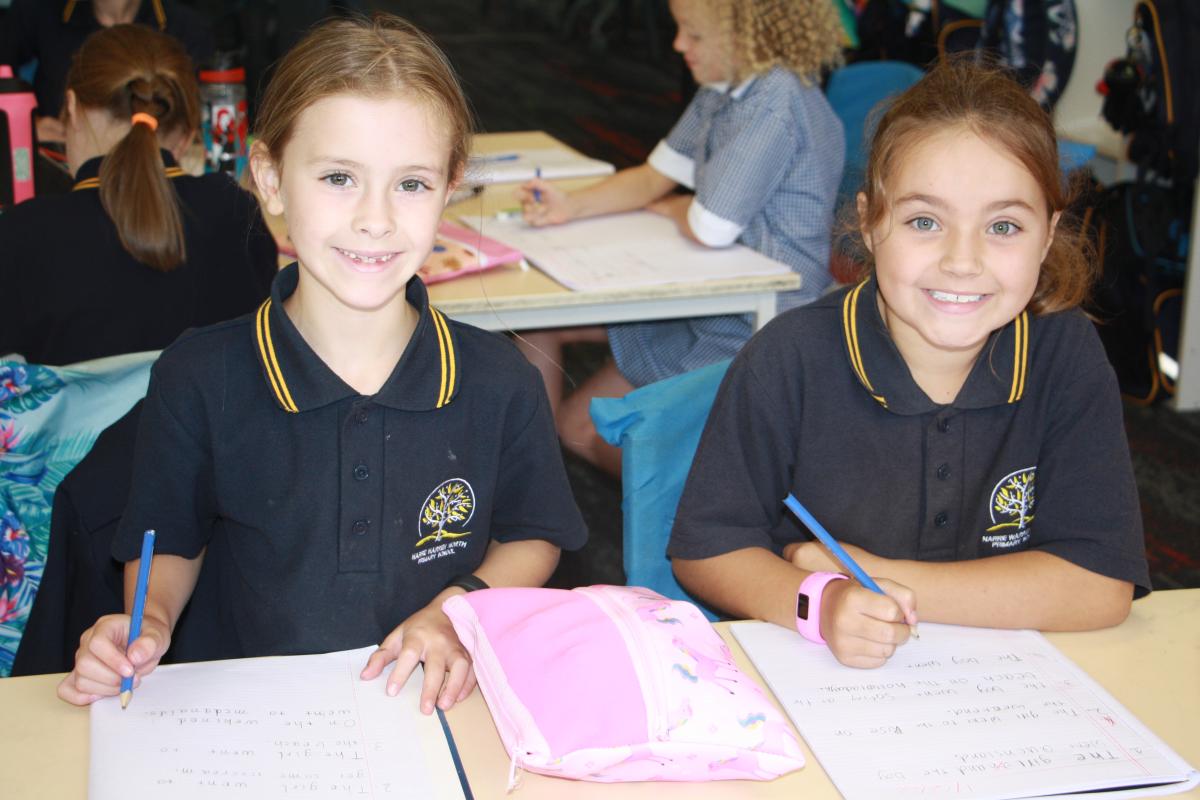
Mathematics
At Narre Warren North Primary School we teach Mathematics to enable students to solve everyday mathematical problems and to be able to successfully apply their mathematical understandings in the real world. Our Mathematics program provides students with knowledge, skills and understanding in Number and Algebra, Measurement and Geometry and Statistics and Probability.
We utilise a wide range of formal and informal assessments to determine a student’s understanding and determine their next stage of learning. Teachers collaboratively plan together to create rich and engaging learning tasks designed to cater for every student at their current point of need. We provide a variety of learning experiences to cater for our students’ different learning styles through our whole school instructional model. Activities include the use of concrete materials, technology, open-ended tasks and problem solving. We utilise a combination of whole class, small group and individual teaching strategies to support students’ mathematical understandings.
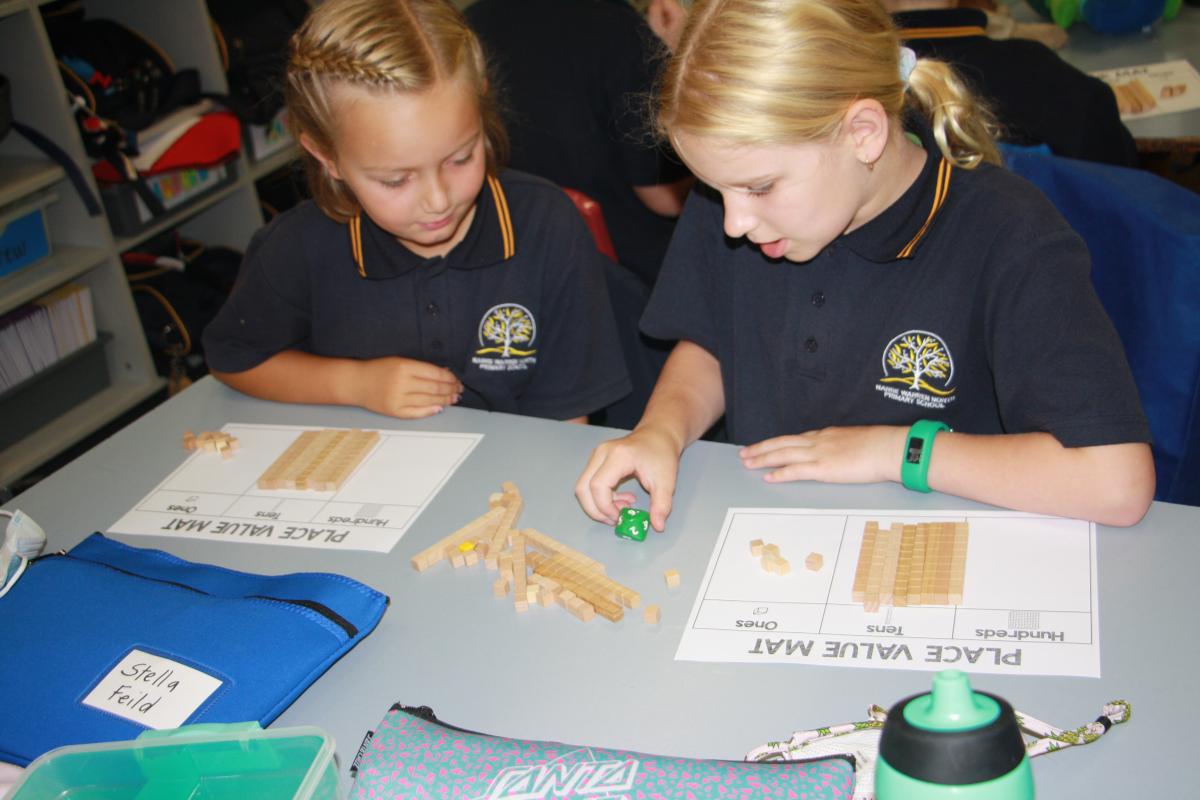
Science
Science is a part of our daily life. Everything we do and deal with in life is science from cooking, playing ball, growing a garden and understanding how technologies work to watching a rain storm. Understanding science helps people appreciate and relate to the world around them.
Here at Narre Warren North our Science lessons focus on the areas of Physics, Earth Science, Chemistry and Biology. While exploring these areas students complete activities that give them opportunity to experiment and work in teams. These activities enhance communication, questioning, research, reporting, and collaboration skills and are lots of fun.
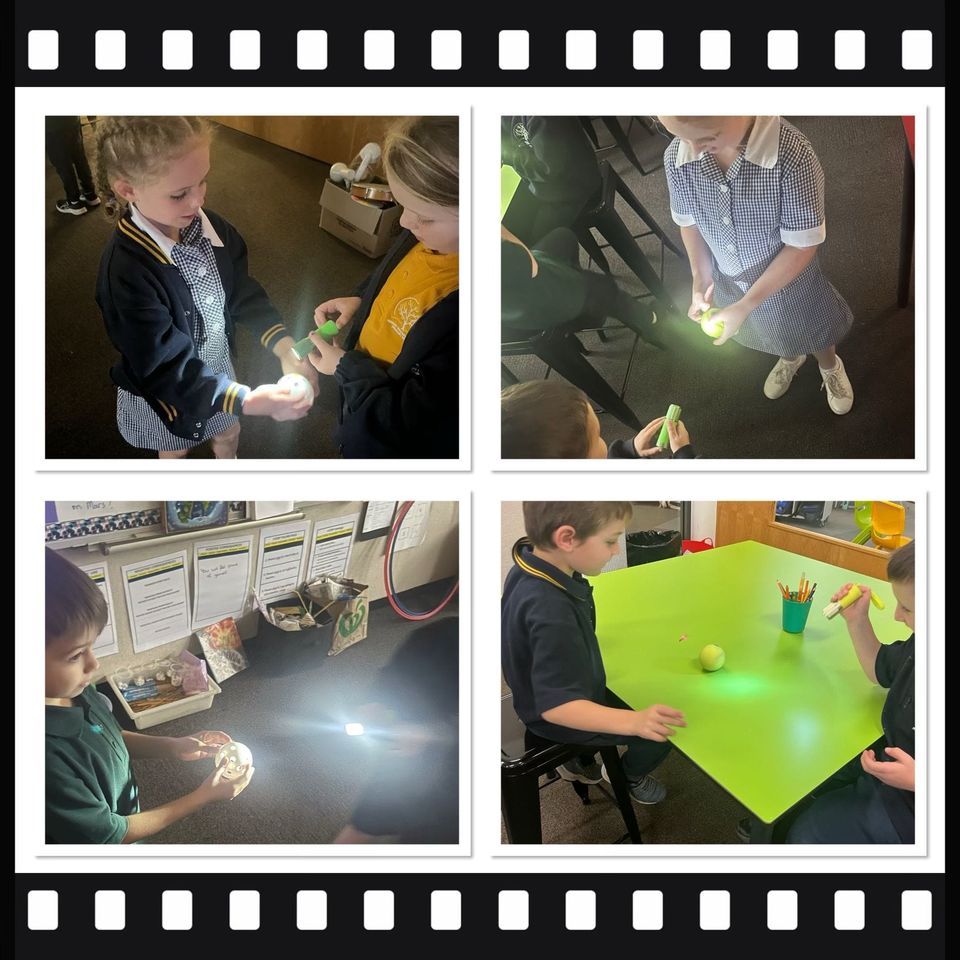
ICT
Did you know….
Narre Warren North Primary School has an extensive range of technology. From Chromebooks, iPads and T.V’s our students are engulfed in the technological 21st century. Technology is used in a variety of ways within our classrooms from Prep to Grade 6 to strengthen the abilities and knowledge of our students. We are preparing our students for a digital future.
We are begining a Bring Your Own Device program in 2024 where students will be able to bring thier own Chromebook to school to use in the classroom. This will begin with the grade 4 students and will be rolled out progressively throughout the senior school. Other students will continue to use the school devices.
Our Cyber curriculum covers Cyber Safety, Coding and the use of different applications. Our school uses a variety of robotic devices to extend students ICT and coding skills including Spheroes, Ozobots and Bluebots. Further to this, our junior students use technology as a basis for understanding the functions and uses of Chromebooks and iPads. Our senior students use technology to enhance and engage with their learning. It offers the students a choice in how they present, research, create and develop their learning. Technology is used as a platform for students to collaborate with their peers and teachers through the use of Google Apps. A wealth of knowledge becomes accessible to them through the internet with safe use explicitly taught.
We are excited to see what advances the future will bring to technology and can’t wait to adopt these developments at Narre Warren North Primary School with our students and within the curriculum.
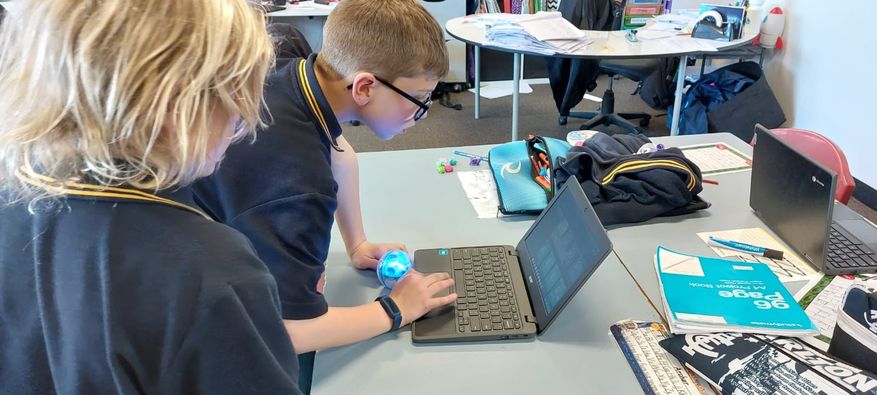
Performing Arts
Our school has a Performing Arts Specialist. All students particpate in performing arts each week where they are able sing, dance, act and play instruments.
Students from Grade 2 to 6 are given the opportunity to participate in our school choir. Practises are held during playtimes and students will perform at our assemblies as well as other special events throughout the year.
Every second year we perform a school concert. Every grade is involved in their own theatrical dance performance. Grade 5 and 6 students are given opportunities to take on speaking roles or backstage additional responsibilities as a part of the concert. Our students are always excited to show off their talent.

Visual Arts
All students from Prep to Year 6 visit the Art room once a week for a Visual Arts lesson. Visual Arts includes the fields of art, craft and design. Students explore the areas of painting, drawing, construction, printing, collage, three-dimensional sculpture, textiles and digital art. They are involved in creating, making and presenting art works, participate in arts criticism and discuss past and present art.
In Visual Arts classes students create visual art works that communicate, challenge and express their own and others’ ideas. They develop perceptual and conceptual understanding, critical reasoning and practical skills through exploring and expanding their understanding of their world, and other worlds. They learn about the role of the artist, craftsperson and designer and their contribution to society. Students learn about the relationships between the viewer and artworks and how artworks can be displayed to enhance meaning for the viewer.
Through Visual Arts, students make and respond using visual arts knowledge, understanding and skills to express meanings associated with personal views, intrinsic and extrinsic worlds. Visual Arts engages students in a journey of discovery, experimentation and problem-solving relevant to visual perception and visual language, utilising visual techniques, technologies, practices and processes. Learning in the Visual Arts leads students to become increasingly confident and proficient in achieving their personal visual aesthetic, appreciating and valuing that of others.
Visual Arts supports students to view the world through various lenses and contexts. They recognise the significance of visual arts histories, theories and practices, exploring and responding to artists, craftspeople and designers and their artworks. They apply visual arts knowledge in order to make critical judgments about their own work and that of others. Learning in the Visual Arts helps students to develop understanding of world cultures and their responsibilities as global citizens.
Aims
The Visual Arts curriculum aims to develop students’:
- conceptual and perceptual ideas and expressions through design and inquiry processes
- visual arts techniques, materials, processes and technologies
- critical and creative thinking, using visual arts languages, theories and practices to apply aesthetic judgment
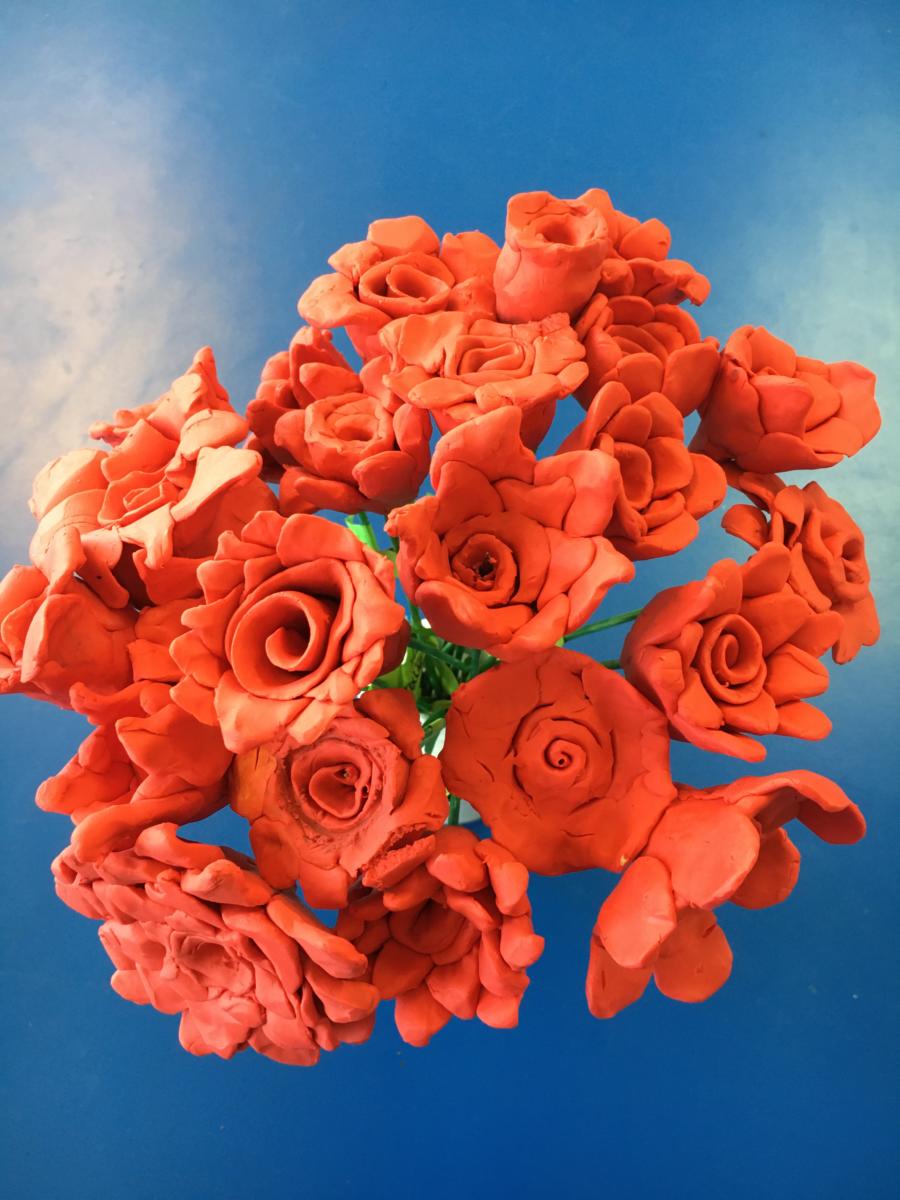
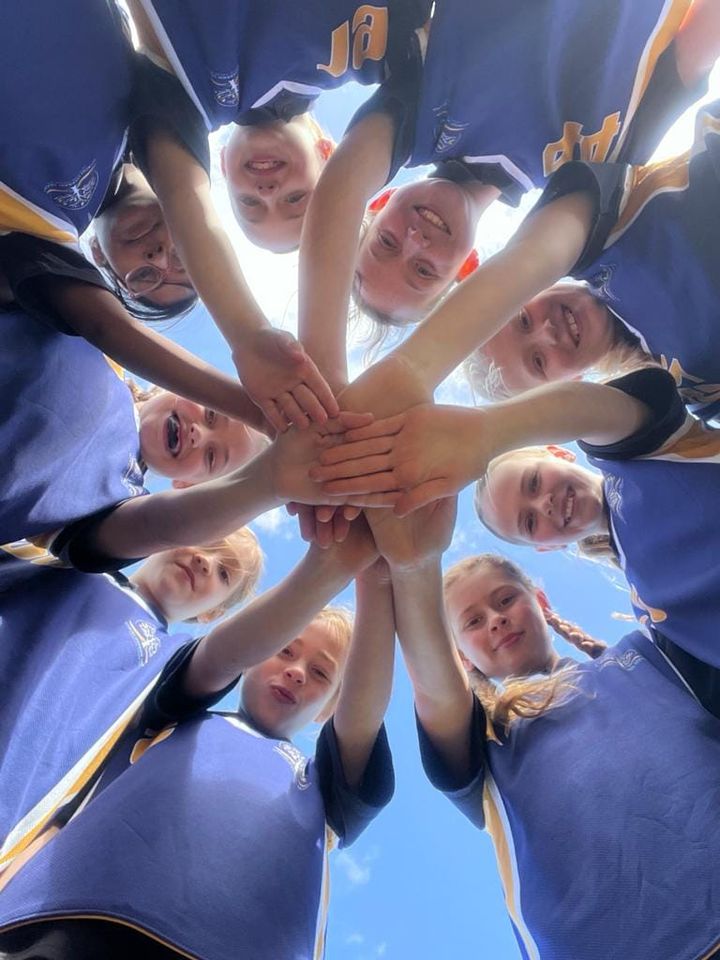
Physical Education
The Physical Education Program at Narre Warren North Primary School aims to provide students with the knowledge, skills and behaviours to enable them to improve and maintain their physical health and wellbeing. Students focus on the acquisition of movement skills, concepts and strategies to enable confident, competent and creative participation in a range of physical activities and is linked to the Victorian Curriculum. This is achieved through developing healthy attitudes and positive participation patterns in fundamental motor skill development and involving students in challenging individual and team activities.
Students in Foundation to Year 2 focus on developing the knowledge, understanding, and skills that support students to be healthy, safe and active individuals who can move competently and confidently in a range of physical spaces. Students will participate in a Fundamental Motor Skills program and will be introduced to the procedures and routines in Physical Education. The movement focus includes active play, body movement patterns and minor games. Fundamental motor skills such as catching, throwing, balancing, jumping and kicking are introduced. Students will participate in fun games to develop the “building blocks” required for more specialised skills that students will need throughout their lives to competently participate in different games, sports and recreational activities.
Students in Years 3 and 4 will continue to develop their fundamental movement skills to increase their success in physical activities. Students learn about the common features of sport through teaching games for understanding as they expand their knowledge of invasion, net/wall, striking/fielding and target games. The rules of many games are introduced and students focus on more specific skill development and feedback processes. Additionally, students begin to understand the role fitness plays in a variety of sports.
The Years 5 to 6 curriculum will focus on goals setting, developing complex movement patterns and refining techniques to encourage and maintain lifelong physical activity participation. Students further refine their fundamental movement skills and learn about the common skills of major games. They are encouraged to expand their understanding of movement strategies and tactics to increase their sense of success in physical activities. Throughout the year, students engage in a range of challenging fitness activities to encourage students to maintain a lifelong passion for physical activity and health.
Students in Year 5 and 6 also have opportunity to participate in numerous Gala days throughout the school year as part of Interschool Sport where they compete against local schools within the Endeavour Hills District. Additionally, students in Grades 3-6 have the opportunity to represent the school in Athletics, Cross Country and/or Swimming. Through School Sport Victoria any student who excels in sport can try out for a state representative team.
Swimming is conducted for students from Foundation to Year 4 as an intensive program at Casey Arc and students in Years 5 and 6 engage in a Victorian Lifesaving Water Safety Program.
All students participate in one weekly 50 minute Physical Education session with their PE teacher with the goal to support all students in developing a wide range of physical skills, as well as a healthy attitude toward physical activity.
Auslan
Our Language Other Than English (LOTE) program at Narre Warren North Primary School is taught to students in Grade Prep to Grade 6.
Auslan (Australian Sign Language) is the language of the Deaf community in Australia. It is a visual form of communication with its own grammatical structures, which are different to those found in English.
Students in Grade Prep to Grade 4 undertake 50 minutes a week of Auslan with a specialist teacher where they use two-handed signs and incorporate a two-handed alphabet (fingerspelling). Emphasis is placed on a combination of handshapes, orientation, movements and facial expressions. Students in Grade 5 and 6 undertake 50 minutes a fortnight.
Learning about Deaf culture, inclusiveness and awareness around people whom Auslan is their first language, is all taught during lessons.
Lessons are taught by explicit teaching of signs, with opportunity to learn and consolidate signs through small group tasks, games, songs, visual aids and teacher/peer feedback.
Students learn how to fingerspell the alphabet, their name, signs relating to themes and extended vocabulary of various signs.
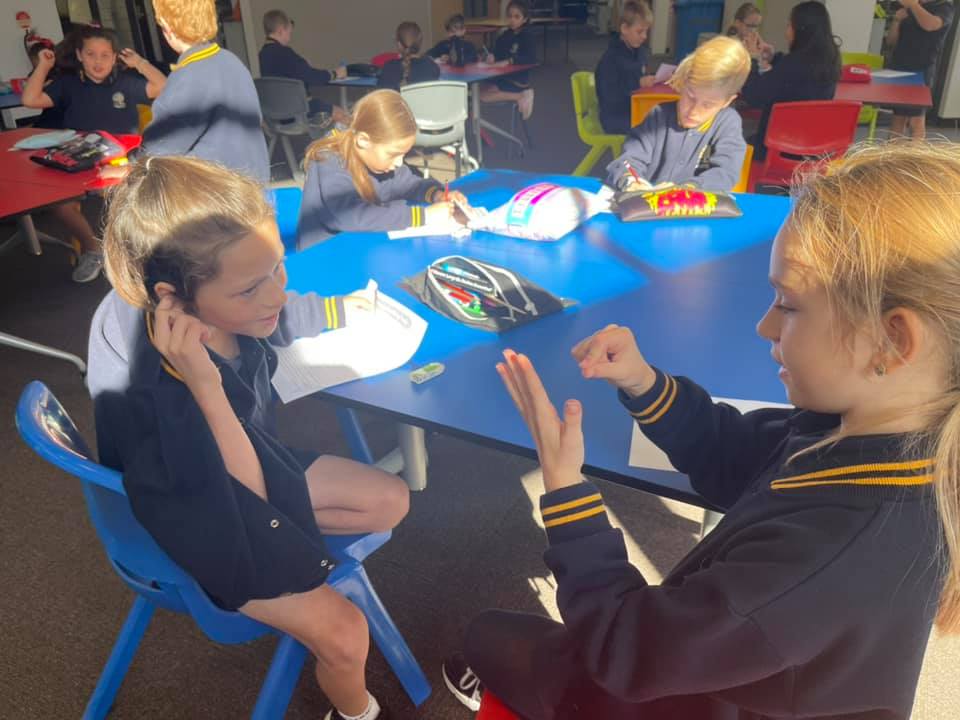

Kimochi
Extra Curricular Opportunities
- Lunchtime Clubs – Tech Club, Environmental Club, Sports Clubs
- Play Pod
- Competitions
- Camps
- Swimming
- Sporting events, e.g. basketball, interschool sport
- Performing Arts – choir, concerts, productions
- Instrumental Music Program

Student Engagement
A vibrant and positive school culture with a shared enthusiasm for learning is key to successful student outcomes. At Narre Warren North Primary School, we are committed to building a culture of student-centred learning and empowering students, building school pride. Students are encouraged to provide teachers with feedback to inform teaching and learning. They are guided to set goals to help improve their learning and are supported with effective feedback on how to move forward to achieve those goals.
The first week of each term the students participate in Welcome Back Week. Welcome Back Week is a chance for the students to reconnect with school and it’s routines after the holiday break. Classroom expectations are revisited, relationships are re-established and the children are given the opportunity to provide feedback to their teacher’s in regards to their learning. Children are asked to give feedback on what helps and hinders their learning e.g. classroom environment/organisation, teacher behaviour, student behaviour, social issues, types of activities, etc. The teachers take on board and this feedback and make changes accordingly.
“When teachers seek, or at least are open to feedback from students as to what students know, what they understand, where they make errors, when they have misconceptions, when they are not engaged – then teaching and learning can be synchronized and powerful. Feedback to teachers helps make learning visible.
Hattie (2009)”
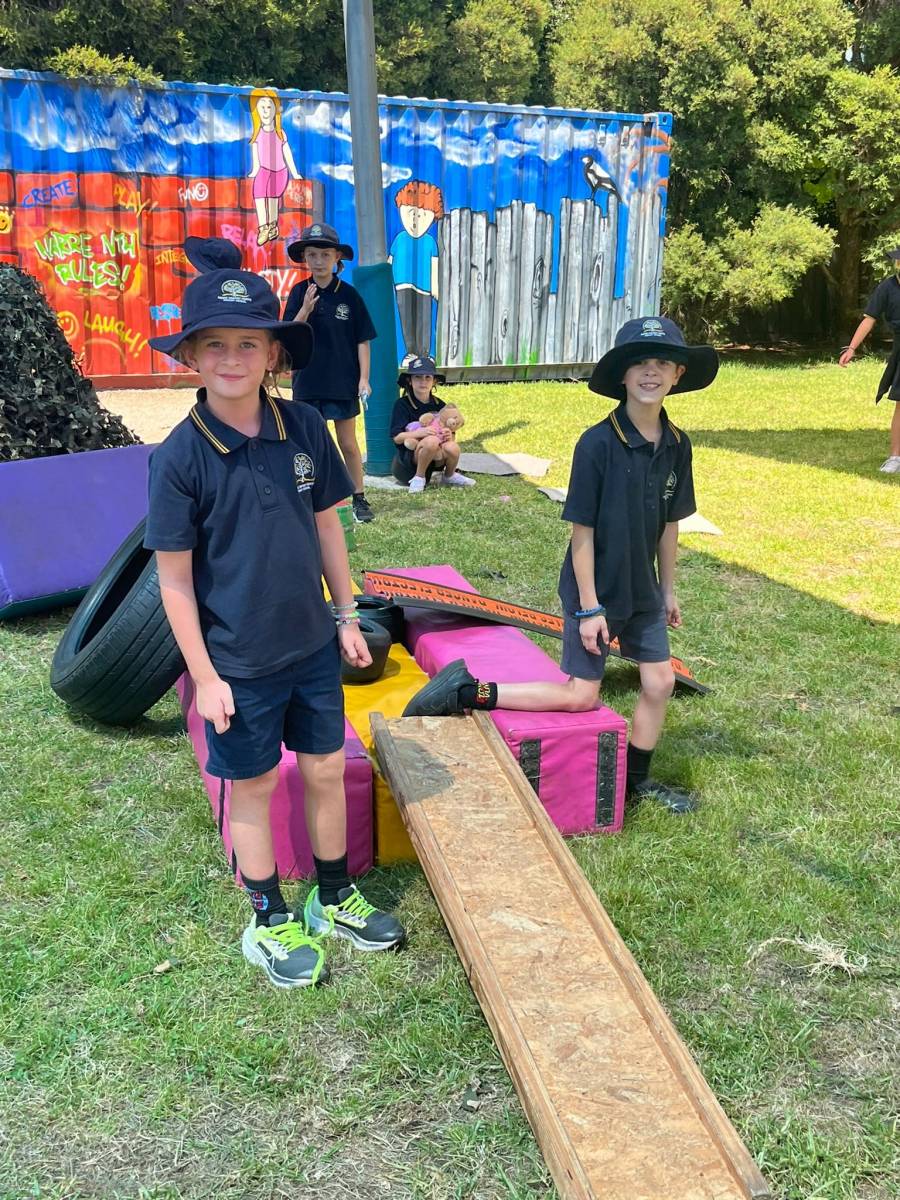
Enrichment Programs
Narre Warren North Primary School runs an extensive range of enrichment programs for highly capable students. These programs are designed to extend student knowledge across a variety of subject areas including Literacy, Numeracy, Science, Humanities, Technology and the Arts.
In addition to this, our enthusiastic teachers have also run term-long enrichment programs in specific areas including ICT, music, creative writing and design/technology. As a result of these programs we have seen the creation of our school cybersafety blog, as well as a wonderful music performance put on by the enrichment students.
Tech Club
Our Tech Club meets each Wednesday. In Tech Club our students can explore some of the latest educational STEM technology and learn how to use basic coding skills. This includes our Bluebots, Spheros, Cozmo, Ozobots, Lego Wedo2.0, and our Intelino Smart Train.
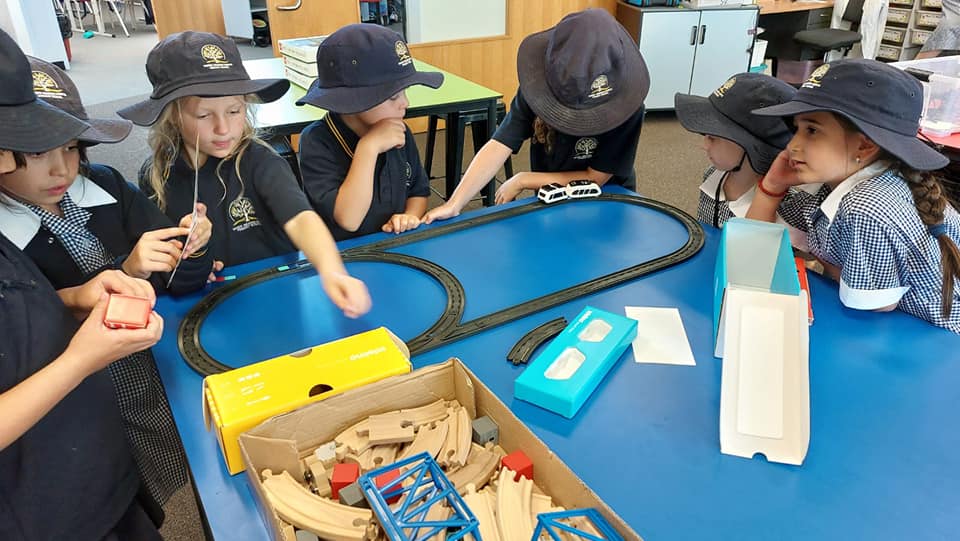
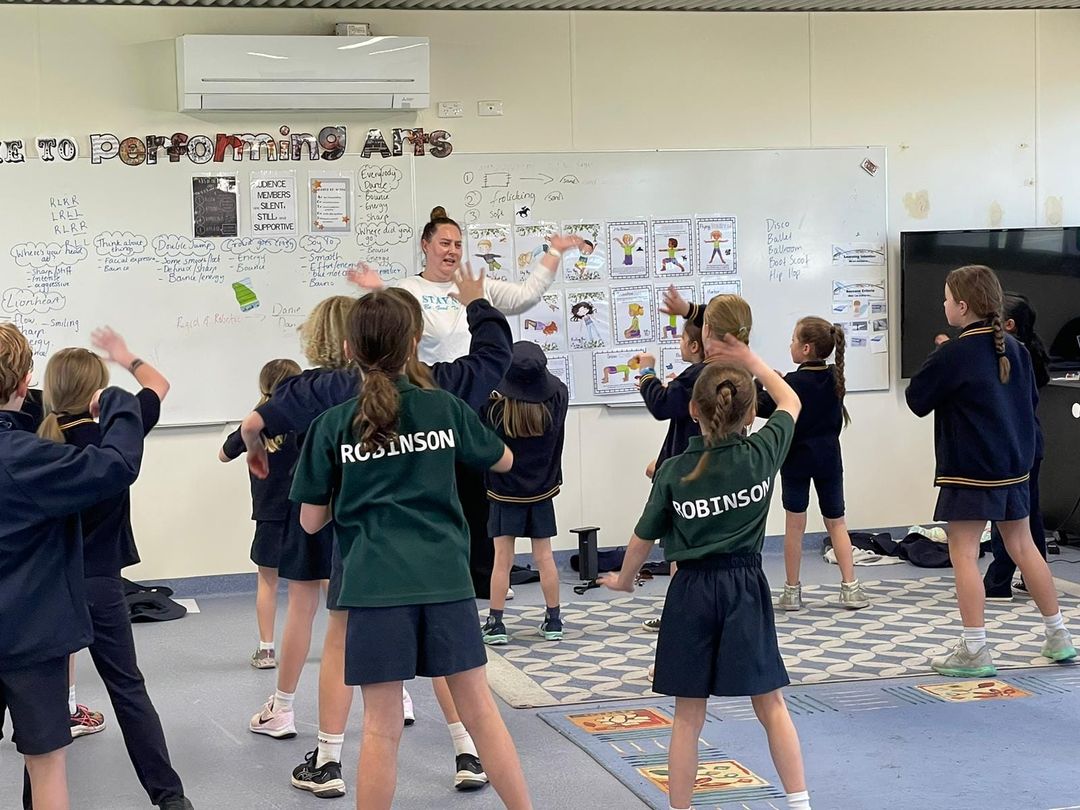
Dance Club
Dance Club is available at lunch time once a week for students who love to dance. Students get to practice dancing in their play time and once a term the dance club performs at the assembly.
Garden Club
Garden club is available to students who want to participate at lunch time once a week. The students help to plant a variety of fruits, vegitables and flowering plants while learning how to care for them and help them grow.
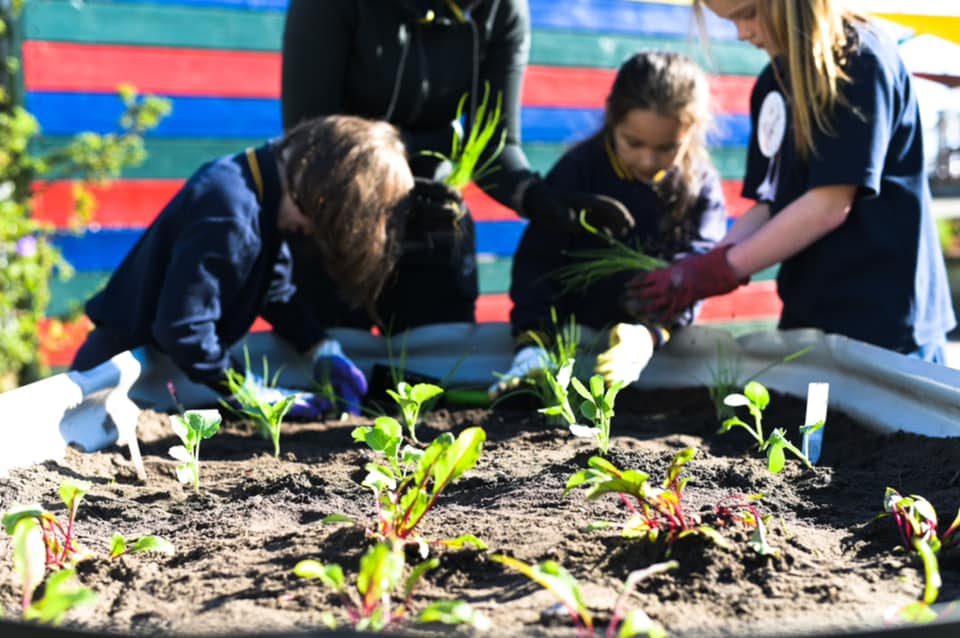
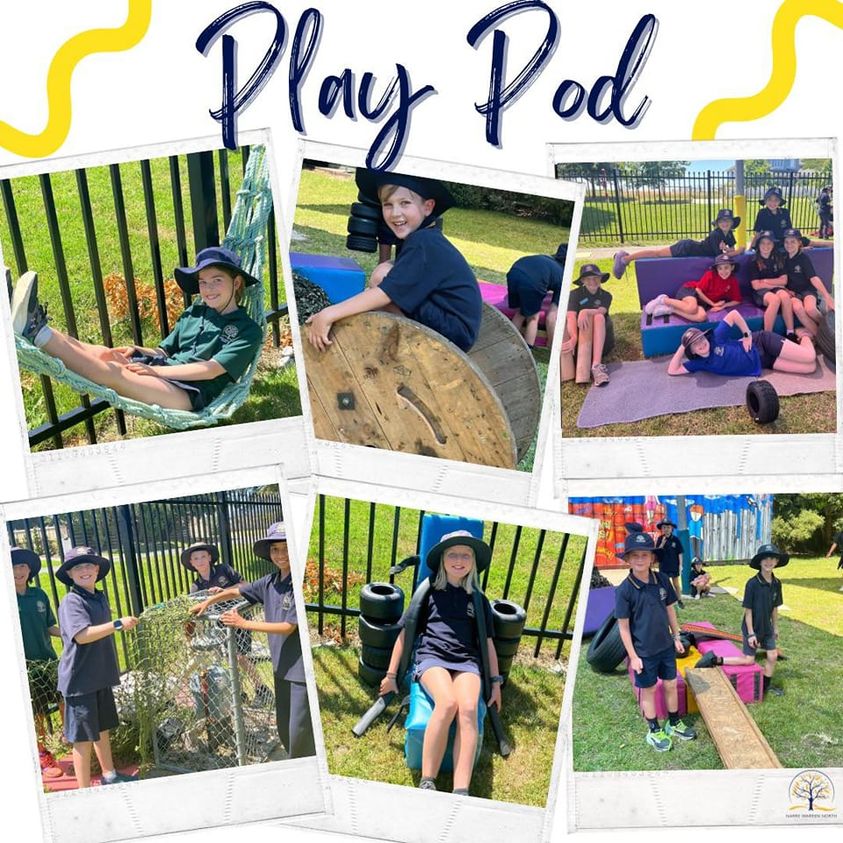
Play Pod
School & House Captains
School House Captains demonstrate a high level of leadership in and around the school as well as presenting a high level of team work. They lead, motivate and support their House in participation, competitive spirit and sportsmanship.
House Captains maintain a high level of commitment throughout the year to promote sport events, encourage and motivate students as well as assist the PE Teacher and school staff in sports related matters. They run and organise a range of lunchtime activities for all students across the school such as Running Club and various sporting games.
Over the year the House Captains develop and enhance their leadership skills through a range of opportunities such as attending the GRIP Conference, speaking at Assemblies and over the PA. They also attend formal sessions covering a range of topics such as how to resolve student conflicts and strategies for running successful lunchtime sessions with students across the school.
At Narre Warren North Primary School we have four Houses; Kerr, Rae, Troup and Robinson.
Junior School Council
Junior School Council is an opportunity for students to have a voice within the school. Two representatives from each Grade 3- 6 class are elected by their peers to represent them at the Junior School Council.
These students meet regularly to discuss any issues, ideas or suggestions students have. The representatives bring this information to the meeting and consider what they can do to assist or problem-solve issues that are important to the student body.
The Junior School Council often raise money for charities or things they think our students need in the school by having special dress up days or organised events.
